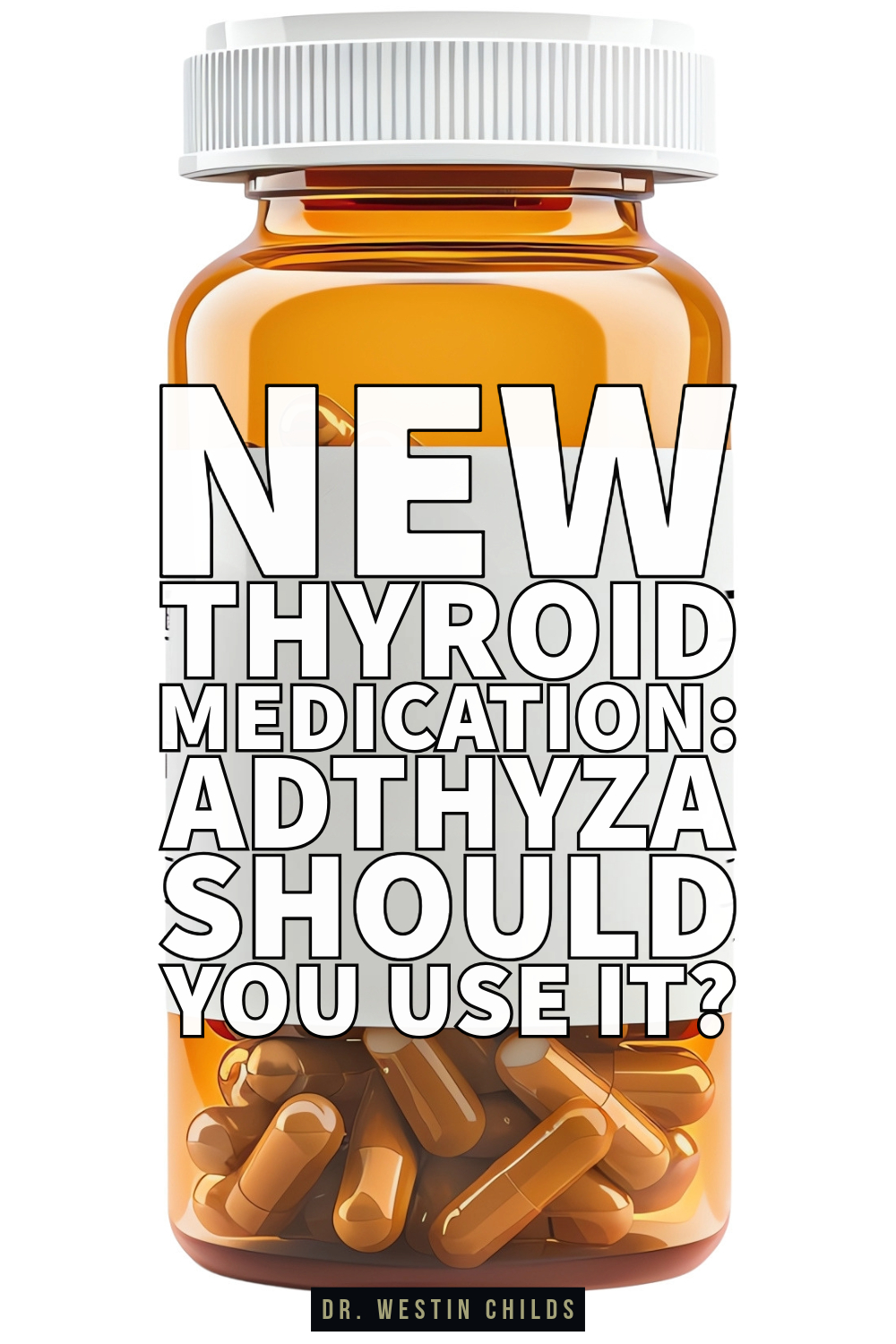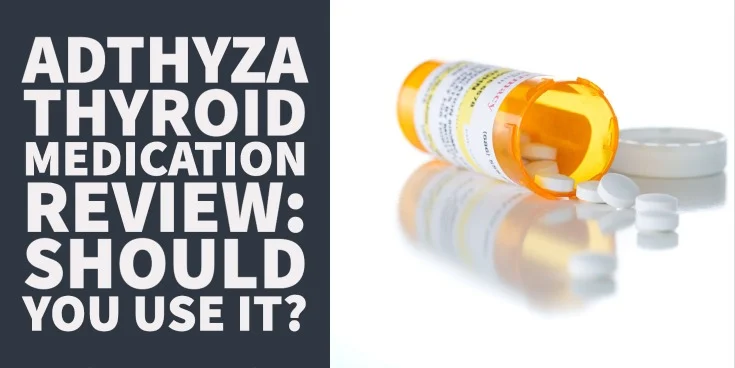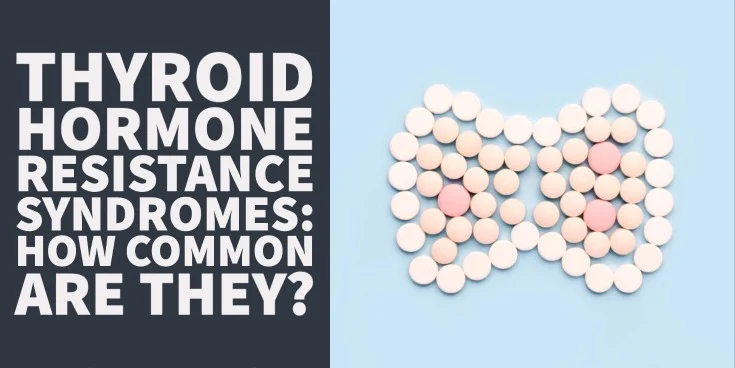There’s a newish thyroid medication on the block that’s trying to make a name for itself.
Meet Adthyza.

It’s a porcine-derived prescription thyroid medication that, based on how it’s marketed, is supposed to be a cleaner alternative to the other thyroid medications on the market.
But does it live up to the claims? Is it worth trying if you are a thyroid patient? How is different from other porcine-derived thyroid medications like NP thyroid and Armour thyroid?
Let’s find out!
A quick little disclaimer before we do, though.
You should know that I have no connection with Adthyza in any way shape or form.
The information you are reading here is 100% unbiased and based on my own opinions.
I have never received monetary compensation from a pharmaceutical company nor do I plan to at any point in the future.
With that in mind, let’s jump in:
What is Adthyza?
So what is Adthyza?
It’s a prescription thyroid medication designed to treat hypothyroidism and low thyroid states.
As I mentioned previously, it is a porcine-derived medication which means it falls into the camp of Natural Desiccated Thyroid medications like NP thyroid and Armour thyroid.
If you knew nothing else about Adthyza, this would be a good thing because it means that it contains more than just T4-only thyroid medications like levothyroxine and Synthroid.
This is important because in order to compare apples to apples, we really want to compare how Adthyza stacks up to Armour thyroid and NP thyroid and not just levothyroxine.
In most cases, Adthyza will be a superior option compared to T4-only thyroid medications by virtue of the fact that it contains T3.
Adthyza seeks to take it a step further, though, by suggesting, through marketing on its website, that it may be a cleaner alternative to those already on the market.
Per its website, Adthyza claims to be lactose-free, gluten-free, corn-free, dye-free, and latex-free.
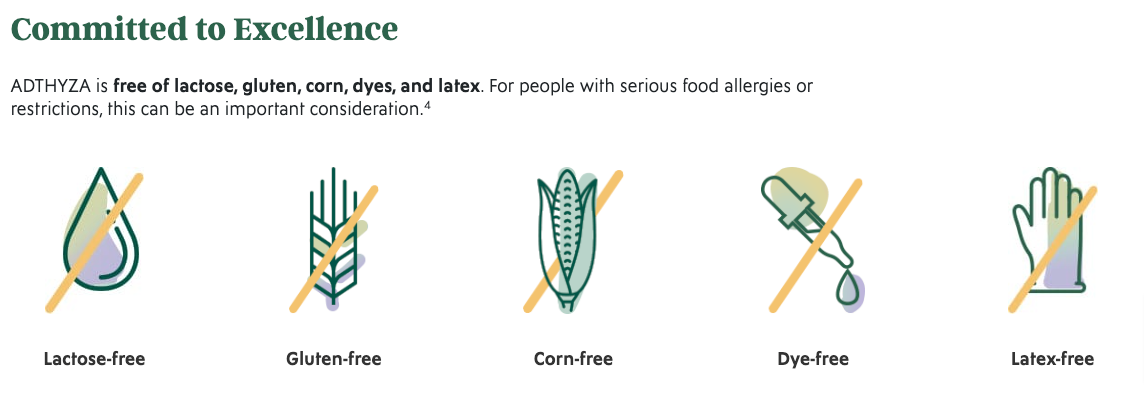
Beyond these claims, Adthyza also states that the manufacturer undergoes strict batch-to-batch quality control measures to ensure the potency of T4 and T3 levels.
This is no doubt a nod at the recent recalls of NP thyroid and Nature-throid (1) that have occurred over the last few years due to sub-potent and super-potent lots.
They don’t specify the exact measures taken to ensure these standards, but if this is the case, then it would be a net positive for the NDT community which did suffer some reputational blows from the recent recalls.
It’s not just the NDT formulations that suffer from recalls, though, as Tirosint-Sol (a T4-only thyroid medication) also had to recall several lots just last month for sub potency (2).
In either event, Adthyza definitely succeeds in differentiating itself from levothyroxine and Synthroid which do contain plenty of additional dyes (with the exception of the 50mcg tablet).
So this is definitely a step in the right direction.
The only problem is that its main competitors (Armour thyroid and NP thyroid) don’t have any dyes either, so that isn’t really a selling point for thyroid patients who are already taking these NDT formulations.
I’ll go over some of the things that I like and dislike about Adthyza in a minute but, for now, let’s focus on the ingredient list.
DOWNLOAD FREE RESOURCES
Foods to Avoid if you Have Thyroid Problems:
I’ve found that these 10 foods cause the most problems for thyroid patients. Learn which foods you should avoid if you have thyroid disease of any type.
The Complete List of Thyroid Lab tests:
The list includes optimal ranges, normal ranges, and the complete list of tests you need to diagnose and manage thyroid disease correctly!
Adthyza Ingredient list:
How does Adthyza stack up to Armour thyroid and NP thyroid? Here’s the complete ingredient list provided by them:
Active ingredients in Adthyza (3):
- Tetraiodothyronine (T4)
- Triiodothyronine (T3)
Inactive ingredients in Adthyza:
- Calcium stearate
- Colloidal silicon dioxide
- Dextrose
- Mannitol
- Microcrystalline cellulose
- Sodium starch glycolate
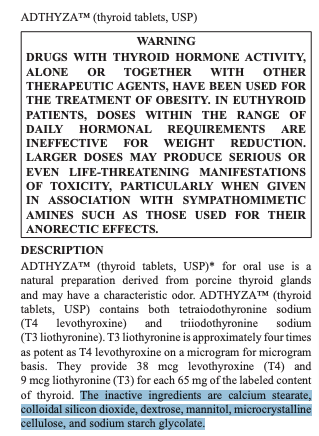
For comparison, here are the active and inactive ingredients found in both Armour thyroid and NP Thyroid:
Active ingredients in Armour thyroid (4):
- Tetraiodothyronine (T4)
- Triiodothyronine (T3)
Inactive ingredients in Armour thyroid:
- Calcium stearate
- Dextrose
- Sodium starch glycolate
- Opadry white

Active ingredients in NP thyroid:
- Tetraiodothyronine (T4)
- Triiodothyronine (T3)
Inactive ingredients in NP thyroid:
- Calcium stearate
- Dextrose Monohydrate
- Maltodextrin
- Mineral oil

From a numbers standpoint, Adthyza doesn’t do well as it contains 6 total inactive ingredients compared to 4 total inactive ingredients in Armour thyroid and 4 total inactive ingredients in NP thyroid.
While it’s not necessarily about the number of ingredients but instead how likely those ingredients are to cause problems, it’s still worth mentioning that the higher number of inactive ingredients the higher probability you have as a patient to react to them.
Based on my reading, I haven’t seen any material suggesting the T2 content in Adthyza so I can’t comment on that aspect but from this data, there doesn’t seem to be anything special about its ingredient profile.
I will say, though, that having additional options, regardless of their ingredients, is still a good thing.
Especially in the face of shortages in Nature-throid and WP thyroid, it’s nice to have a third alternative to Armour thyroid and NP thyroid.
More choices are always better for thyroid patients.
How is Adthyza Dosed?
Adthyza is dosed similarly to Nature-throid and WP thyroid in that each grain is 65mg.
This is slightly different from Armour thyroid and NP thyroid in which each grain is 60mg.
Don’t let the mg dosing confuse you because 1 grain contains 9 mcg of T3 and 38 mcg of T4 regardless of whether the mg dosing is 60mg or 65mg.
Beyond the standard grain dosing, Adthyza comes in 5 different strengths:
- 16.25 mg (1/4 grain)
- 32.5 mg (1/2 grain)
- 65 mg (1 grain)
- 97.5 mg (1.5 grain)
- 130 mg (2 grains)
This can be compared to Armour thyroid which comes in the following strengths (5):
- 1/4 grain
- 1/2 grain
- 1 grain
- 1 1/2 grain
- 2 grain
- 3 grain
- 4 grain
- 5 grain
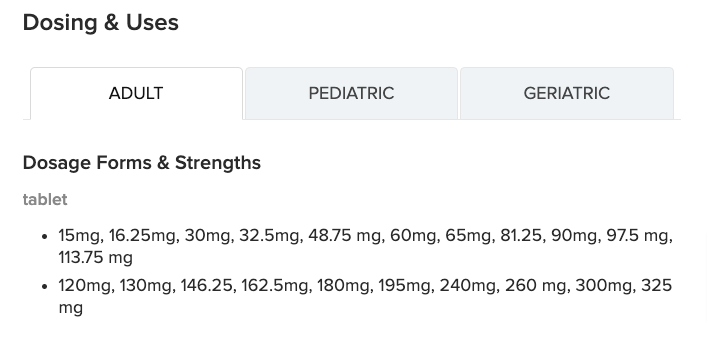
Even though there are additional strengths for Armour thyroid, those higher-end doses aren’t used as often so that isn’t really a deal breaker one way or the other.
It just means that if you are taking an uncommon dose and if you are using Adthyza that you will need to likely take multiple strengths to achieve your ideal dose.
What I like:
While I’m not going to run around singing the praises of Adthyza just yet, there are a few things that I do like about this thyroid medication:
#1. The recognition that up to 10-15% of thyroid patients don’t do well on T4-only thyroid medications.
This is definitely a step in the right direction coming from a major pharmaceutical company.
It seems that one of their major marketing points is that T4-only thyroid medication isn’t sufficient to eliminate hypothyroid symptoms in 10-15% of patients (6).
Even though you and I have known this for a long time, it’s good to see its recognition by the conventional side of things even if it is just a marketing tactic.
For those not away, you can learn more about why T4-only thyroid medications are insufficient for many thyroid patients and why thyroid medications that contain T3 can help solve this issue.
#2. The ability to look up testing results on the lot you are taking.
Worth mentioning is that, as a thyroid patient, you have the ability to look up the testing results for the lot of Adthyza you are currently taking.

This is certainly in response to the lack of trust that has been brewing from thyroid patients over the last several years in regards to sub-potent and superpotent lots of NDT.
This look-up feature allows you to input the lot you are using into a search field which will then spit out the testing results from that lot.
This means you can rest easy knowing that your medication contains the ingredients that it says it does.
To my knowledge, this search feature is not available for NP thyroid or Armour thyroid.
Lot testing and lookup have been available in the supplement industry and it’s good to see this starting for prescription medications as well.
It just helps to build trust and transparency in a system that has lost a lot of credibility over the last few years.
#3. The attempt to clean up thyroid medications by reducing inactive fillers and binders.
Even though I don’t think they did a great job in this area, I still commend them for at least giving it a try.
Right now it looks more like a marketing tactic than anything else, but I’m giving them credit for the thought because it means they are aware that thyroid patients are looking for cleaner alternatives than what is currently available.

I’ve long been critical of the inactive ingredients, binders, and fillers that can be found in thyroid medications including common allergens like lactose!
It seems absolutely crazy to include lactose in a medication designed for patients who have increased rates of allergies to that very ingredient.
Not all thyroid medications contain lactose but notable offenders include Synthroid, Nature-throid, and WP thyroid.
#4. The recognition that thyroid medication must be taken appropriately for it to be effective.
This isn’t always a problem but I’m still blown away by how many thyroid patients take their thyroid medication incorrectly.
The manufacturer of Adthyza has some pretty good recommendations on their website for how to use thyroid medication appropriately.
They recommend:
- Taking Adthyza at the same time of day with 8 ounces of water.
- Taking Adthyza on an empty stomach at least 30-60 minutes away from eating or drinking anything other than water.
- Waiting 2 hours to take Adthyza if you’ve already eaten.
- Avoid taking Adthyza within 4 hours of any supplement that contains calcium, antacids, iron, or cholestyramine.
These are basic recommendations that apply to all thyroid medications but it’s still good to see them bring awareness to these simple facts.
#5. The fact that there are more options available for thyroid patients.
Finally, I’m going to give them credit for creating a new thyroid medication period.
In a world where endocrinologists and conventional medicine is trying to push the levothyroxine-only treatment paradigm, it’s nice to see at least one new option available.
This gives me hope that newer (better) and cleaner thyroid medications may be around the corner.
What I don’t like:
#1. It’s not much cleaner than other alternatives already available.
As much as I hate to say it, after looking at the ingredient list, I can’t really say that Adthyza is a super clean thyroid medication.
If that’s what they were going for, they could have done a lot better.
#2. The price.
I’m all for the creation of new thyroid medications but they need to be priced appropriately.
The problem is that even though these newer medications are likely much more effective than medications like levothyroxine, the simple fact is that they are out of reach for the majority of people.
I’m a huge advocate of investing in your own health, even if that means making sacrifices and adjusting the budget, but the truth is there will be people who can’t afford better options because levothyroxine is priced at $4 per month (and even cheaper, in some cases).
The good news is that Adthyza does have a savings program in which they state that you can get it for as little as $1 per day, but that still puts a month’s supply at $30 compared to levothyroxine at $4 or less.
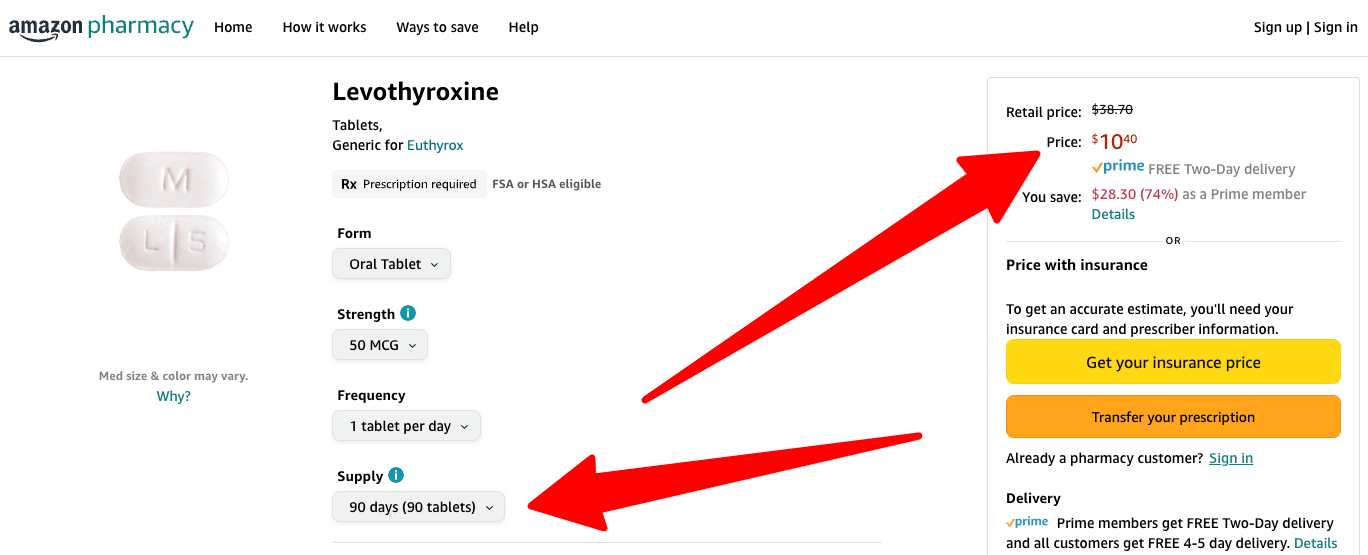
I hate to see thyroid patients feel poorly because they can’t afford more expensive prescription medications.
Goodrx.com puts the average cost of a 30-day supply of 1 grain of Adthyza around $35.00:
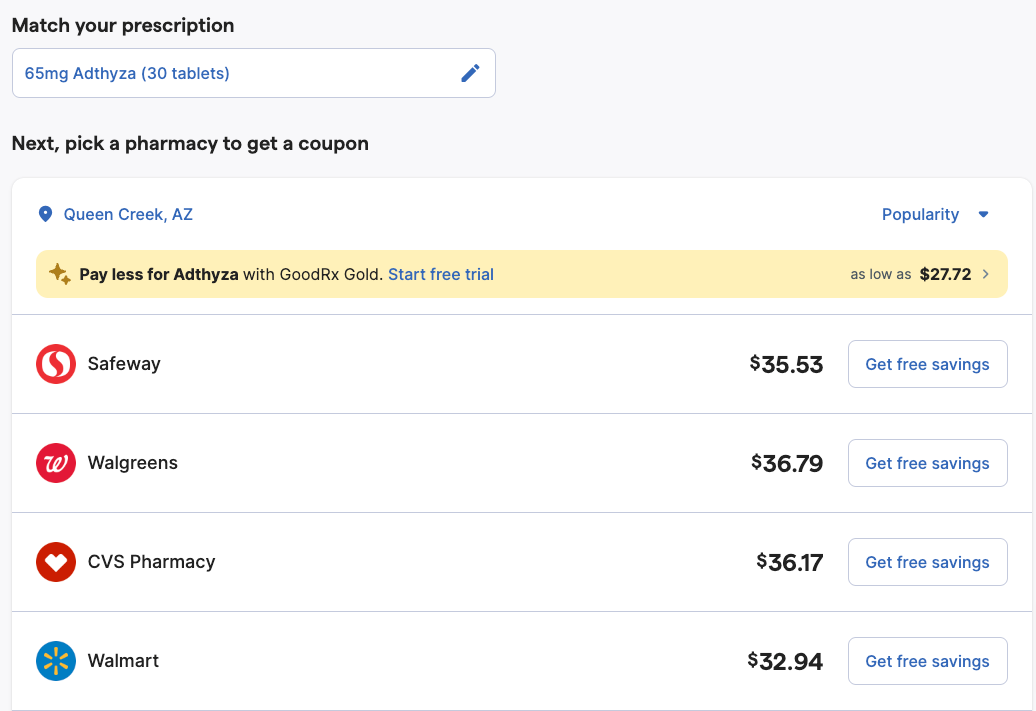
For comparison, a 30-day supply of Armour thyroid is around the same price:
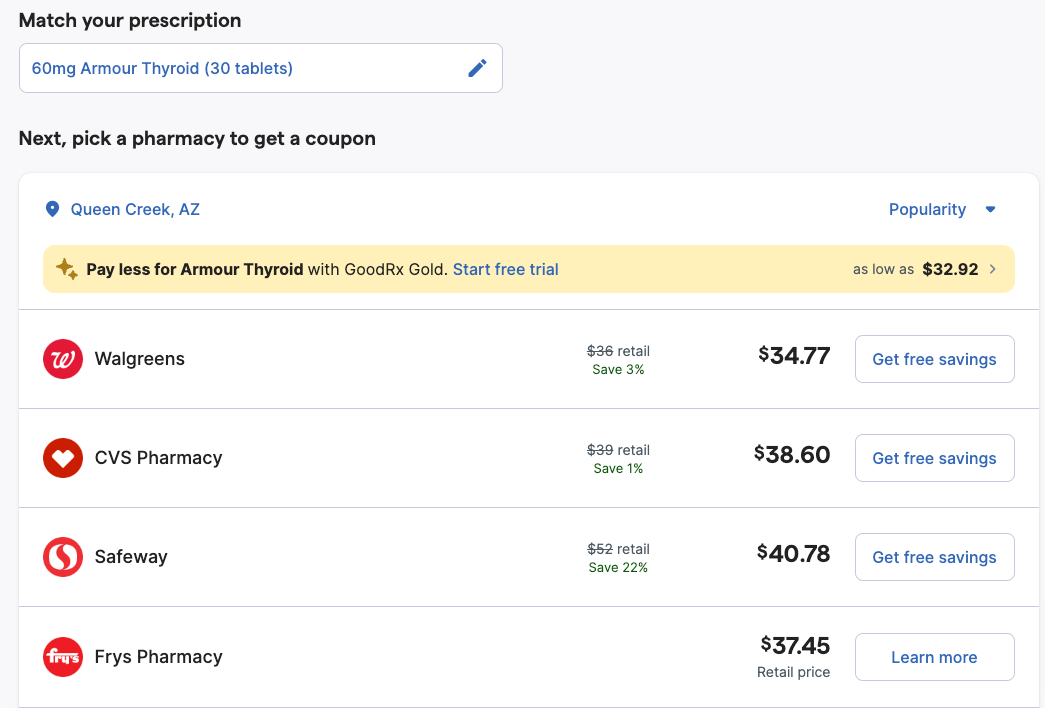
A 30-day supply of NP thyroid, on the other hand, is the cheapest of all three options with some prices as low as $14 for a month’s supply of the same strength and dose:
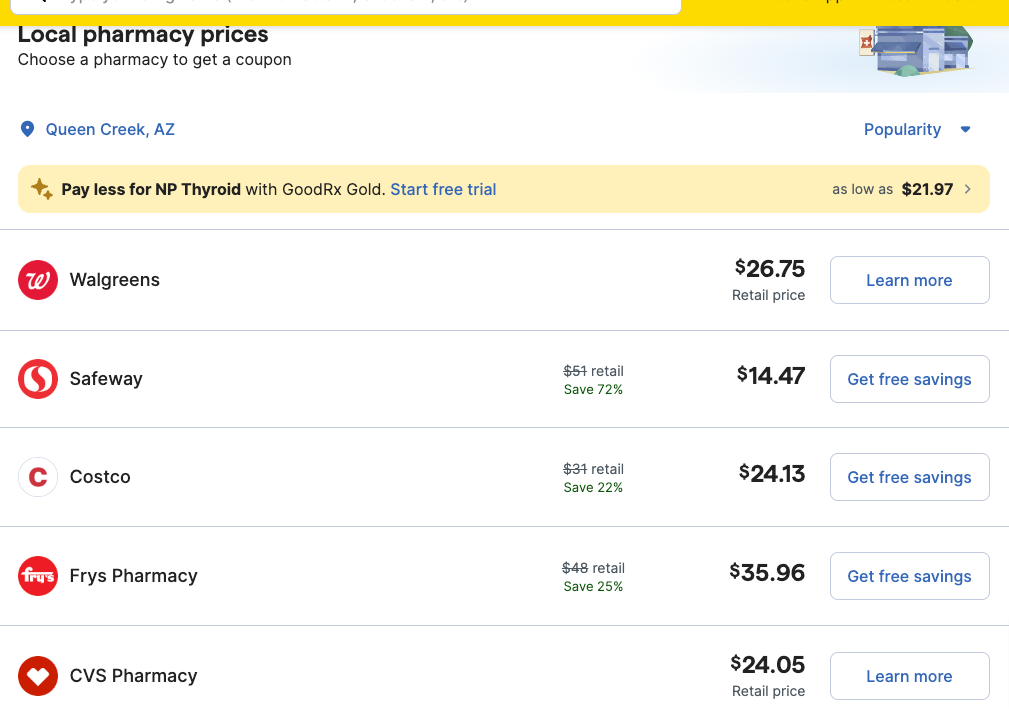
#3. Limited strengths.
Another potential limitation to the use of Adthyza is the limited strengths available.
As I mentioned previously, this isn’t a deal breaker but there are situations in which it may be necessary to take several tablets to reach the desired dose and strength.
For those who don’t have any issues swallowing tablets, this isn’t an issue but there’s no shortage of adults who have problems swallowing capsules and tablets (7) that may have a problem with this.
#4. Their marketing is not very… robust.
I’ve spent the last 8 years living and breathing everything thyroid related and the release of this medication almost slipped under my radar.
I’m not sure what is going on with the marketing of this medication but perhaps they should consider spending some money to get this information in front of thyroid patients.
These pharmaceutical companies are using the old way of marketing which is to go directly to the doctors but they fail to understand the importance of the community in driving the spread of information.
This is a minor issue, but it seems strange to release a new thyroid medication into the ether where it’s barely noticed.
Should You Use it?
It all comes down to this:
Are the benefits of using Adthyza strong enough to warrant switching from whatever thyroid medication you are currently taking?
As always, it depends on your personal situation but here are a few things to consider:
Are you currently well-managed with whatever thyroid medication you are taking?
If the answer is no, then it would be worth giving this new thyroid medication a try.
Do you have a known or suspected allergy to an ingredient in your current formulation of thyroid medication?
If the answer is yes, then giving Adthyza might be worth a shot.
Have you tried other thyroid medications in the past but have been unable to get to 100% regardless of which one you use?
If the answer is yes, then giving Adthyza may be worth a shot.
Outside of these guidelines, I don’t see any other strong reasons for wanting to switch thyroid medications.
Based on everything I am seeing from the marketing of this medication, I’m optimistic but not overly enthusiastic.
I don’t want to be too harsh, though, because I do think it’s very important for new pharmaceutical companies to see that there is interest in new thyroid medications.
If they see this interest then they may be more likely to create newer and better thyroid medications in the future which means more options for thyroid patients.
Now I want to hear from you:
What do you think about this new thyroid medication?
Is this the first time you’ve heard about it?
Are you planning on giving it a try? Why or why not?
What kind of thyroid medication are you currently taking?
Leave your questions or comments below!
Scientific References
#1. fda.gov/safety/recalls-market-withdrawals-safety-alerts/rlc-labs-inc-issues-voluntary-nationwide-recall-all-lots-nature-throidr-and-wp-thyroidr-current
#2. fda.gov/safety/recalls-market-withdrawals-safety-alerts/ibsa-pharma-inc-issues-voluntary-nationwide-recall-select-lots-tirosintr-sol-levothyroxine-sodium
#3. adthyza.com/hcp/media/pdf/ADTHYZA-PI.pdf
#4. rxabbvie.com/pdf/armour_thyroid_pi.pdf
#5. reference.medscape.com/drug/armour-thyroid-thyroid-usp-thyroid-desiccated-342736
#6. pubmed.ncbi.nlm.nih.gov/31354624/
#7. ncbi.nlm.nih.gov/pmc/articles/PMC7810703/
